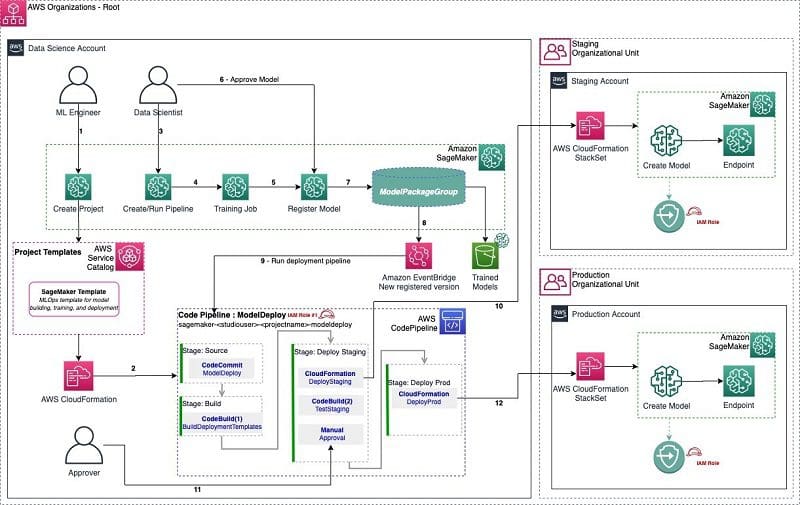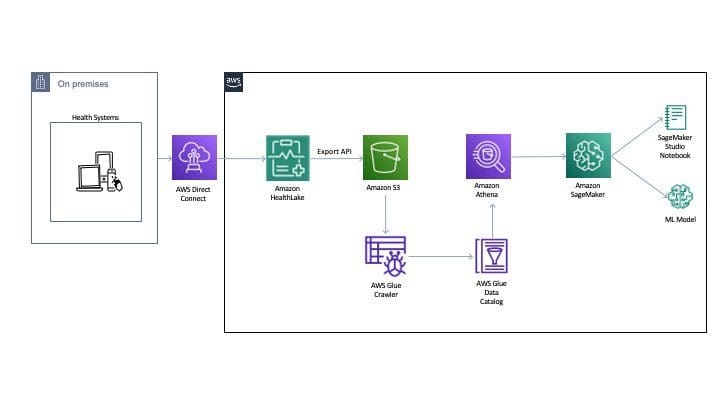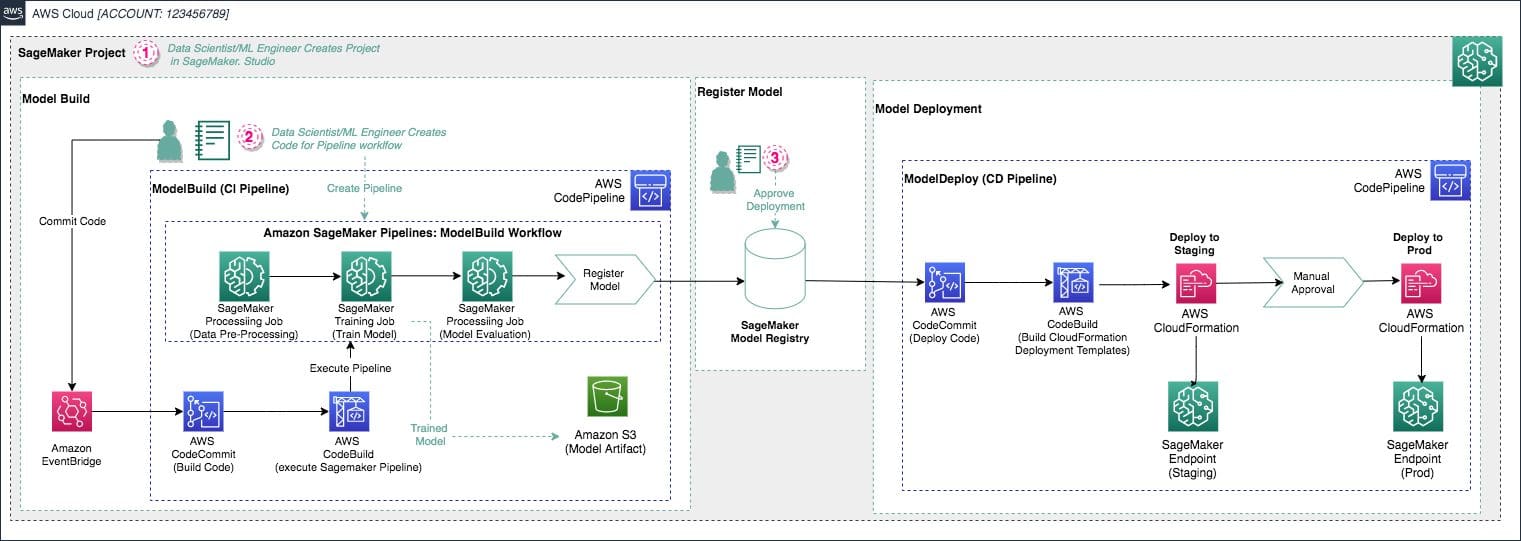Favorite Natural conversations often include pauses and interruptions. During customer service calls, a caller may ask to pause the conversation or hold the line while they look up the necessary information before continuing to answer a question. For example, callers often need time to retrieve credit card details when making
Read More
 Shared by AWS Machine Learning January 26, 2021
Shared by AWS Machine Learning January 26, 2021
Favorite Developing and deploying a deep learning model involves many steps: gathering and cleansing data, designing the model, fine-tuning model parameters, evaluating the results, and going through it again until a desirable result is achieved. Then comes the final step: deploying the model. AWS Lambda is one of the most cost effective service
Read More
 Shared by AWS Machine Learning January 25, 2021
Shared by AWS Machine Learning January 25, 2021
Favorite According to Gartner, 58% of marketing leaders believe brand is a critical driver of buyer behavior for prospects, and 65% believe it’s a critical driver of buyer behavior for existing customers. Companies spend huge amounts of money on advertisement to raise brand visibility and awareness. In fact, as per
Read More
 Shared by AWS Machine Learning January 25, 2021
Shared by AWS Machine Learning January 25, 2021
Favorite Deploying your machine learning (ML) models to run on a REST endpoint has never been easier. Using AWS Elastic Beanstalk and Amazon Elastic Compute Cloud (Amazon EC2) to host your endpoint and Deep Java Library (DJL) to load your deep learning models for inference makes the model deployment process
Read More
 Shared by AWS Machine Learning January 25, 2021
Shared by AWS Machine Learning January 25, 2021
Favorite Amazon SageMaker Pipelines is the first purpose-built CI/CD service for machine learning (ML). It helps you build, automate, manage, and scale end-to-end ML workflows and apply DevOps best practices of CI/CD to ML (also known as MLOps). Creating multiple accounts to organize all the resources of your organization is
Read More
 Shared by AWS Machine Learning January 22, 2021
Shared by AWS Machine Learning January 22, 2021
Favorite Incrementalism will not work as a way to introduce Knowledge Management. KM is a mindshift – a giant leap – not a series of small steps. One giant leap by Vivobarefoot on Flickr Incrementalism is a method of working or changing by using many small incremental changes instead of
Read More
 Shared by Nick Milton January 22, 2021
Shared by Nick Milton January 22, 2021
Favorite Amazon Comprehend is a natural language processing (NLP) service that uses machine learning (ML) to find insights and relationships in text. The service can extract people, places, sentiments, and topics in unstructured data. You can now use Amazon Comprehend ML capabilities to detect and redact personally identifiable information (PII)
Read More
 Shared by AWS Machine Learning January 20, 2021
Shared by AWS Machine Learning January 20, 2021
Favorite In this post, we walk you through the steps to build machine learning (ML) models in Amazon SageMaker with data stored in Amazon HealthLake using two example predictive disease models we trained on sample data using the MIMIC-III dataset. This dataset was developed by the MIT lab for Computational
Read More
 Shared by AWS Machine Learning January 19, 2021
Shared by AWS Machine Learning January 19, 2021
Favorite Prior to using any kind of supervised machine learning (ML) algorithm, data has to be labeled. Amazon SageMaker Ground Truth simplifies and accelerates this task. Ground Truth uses pre-defined templates to assign labels that classify the content of images or videos or verify existing labels. Ground Truth allows you
Read More
 Shared by AWS Machine Learning January 19, 2021
Shared by AWS Machine Learning January 19, 2021
Favorite We recently announced Amazon SageMaker Pipelines, the first purpose-built, easy-to-use continuous integration and continuous delivery (CI/CD) service for machine learning (ML). SageMaker Pipelines is a native workflow orchestration tool for building ML pipelines that take advantage of direct Amazon SageMaker integration. Three components improve the operational resilience and reproducibility
Read More
 Shared by AWS Machine Learning January 19, 2021
Shared by AWS Machine Learning January 19, 2021

![]() Shared by AWS Machine Learning January 26, 2021
Shared by AWS Machine Learning January 26, 2021








